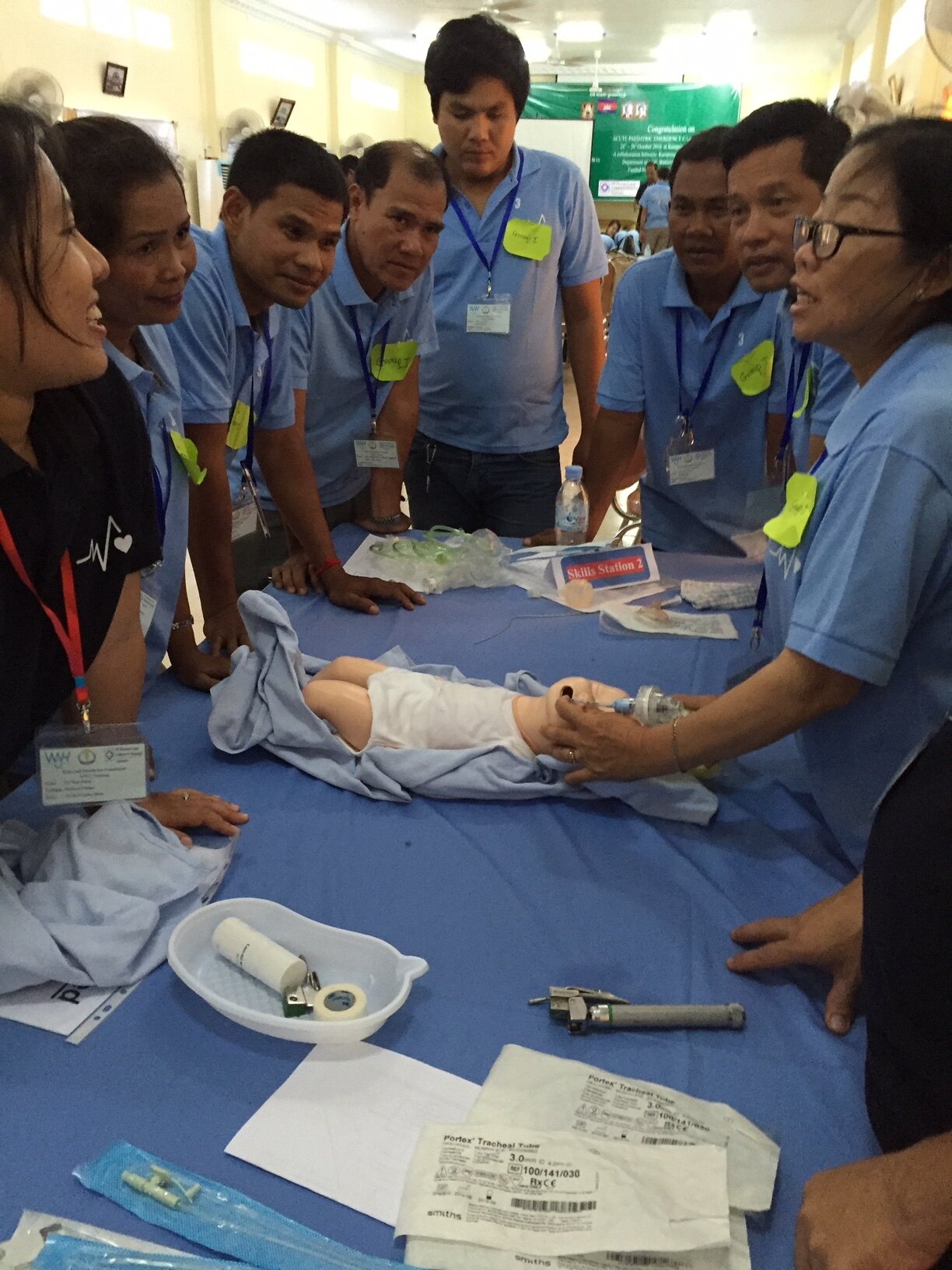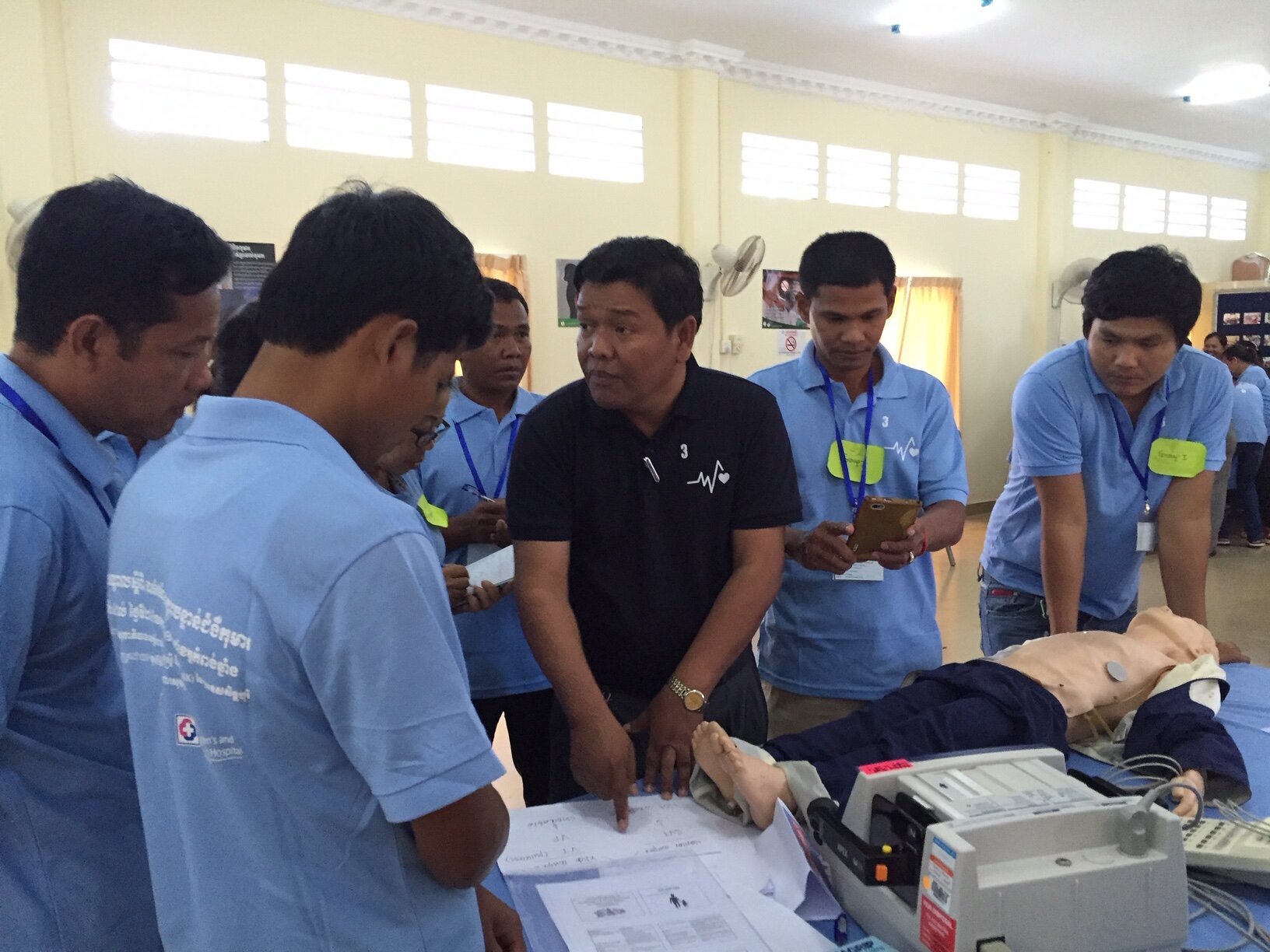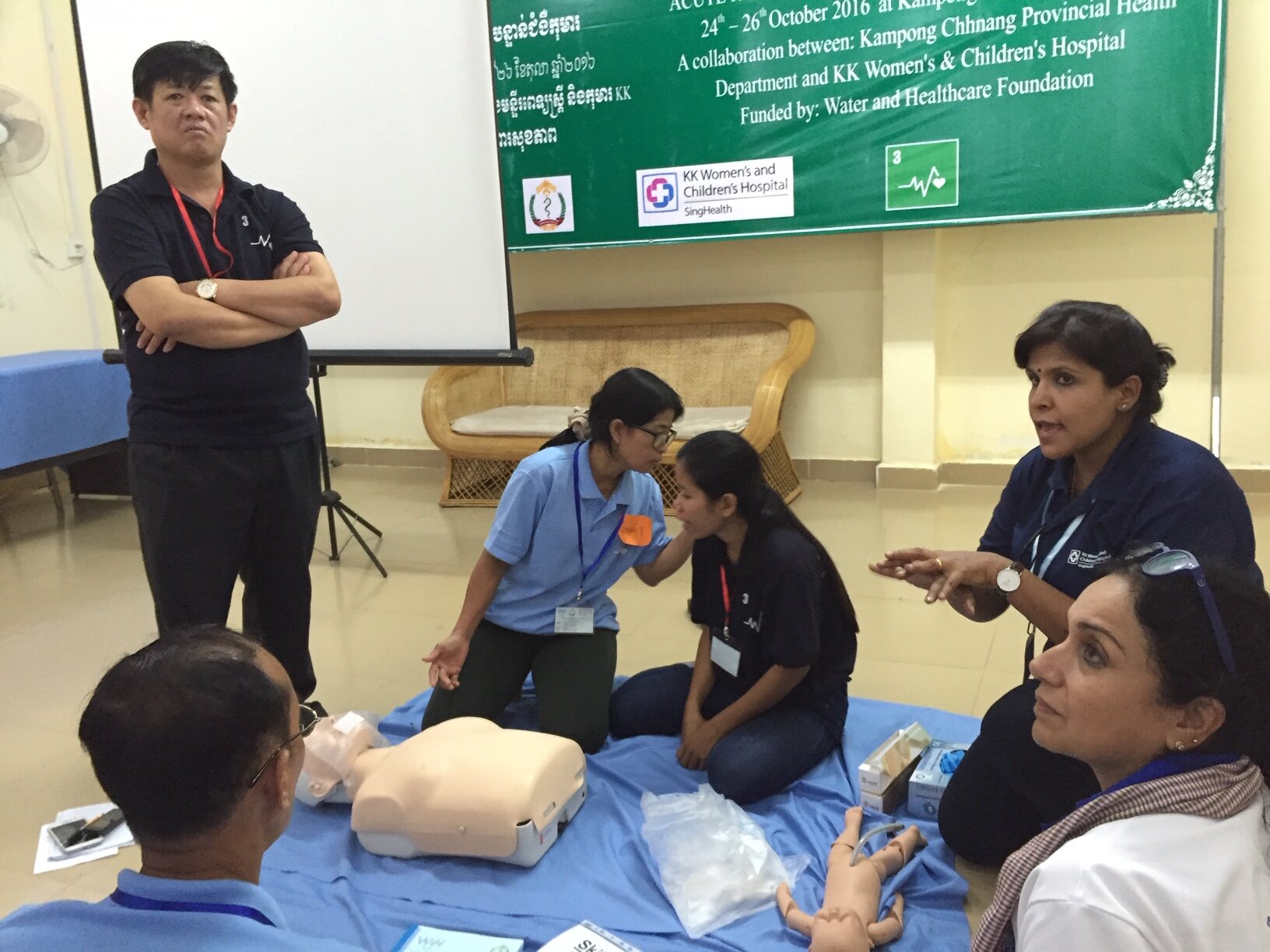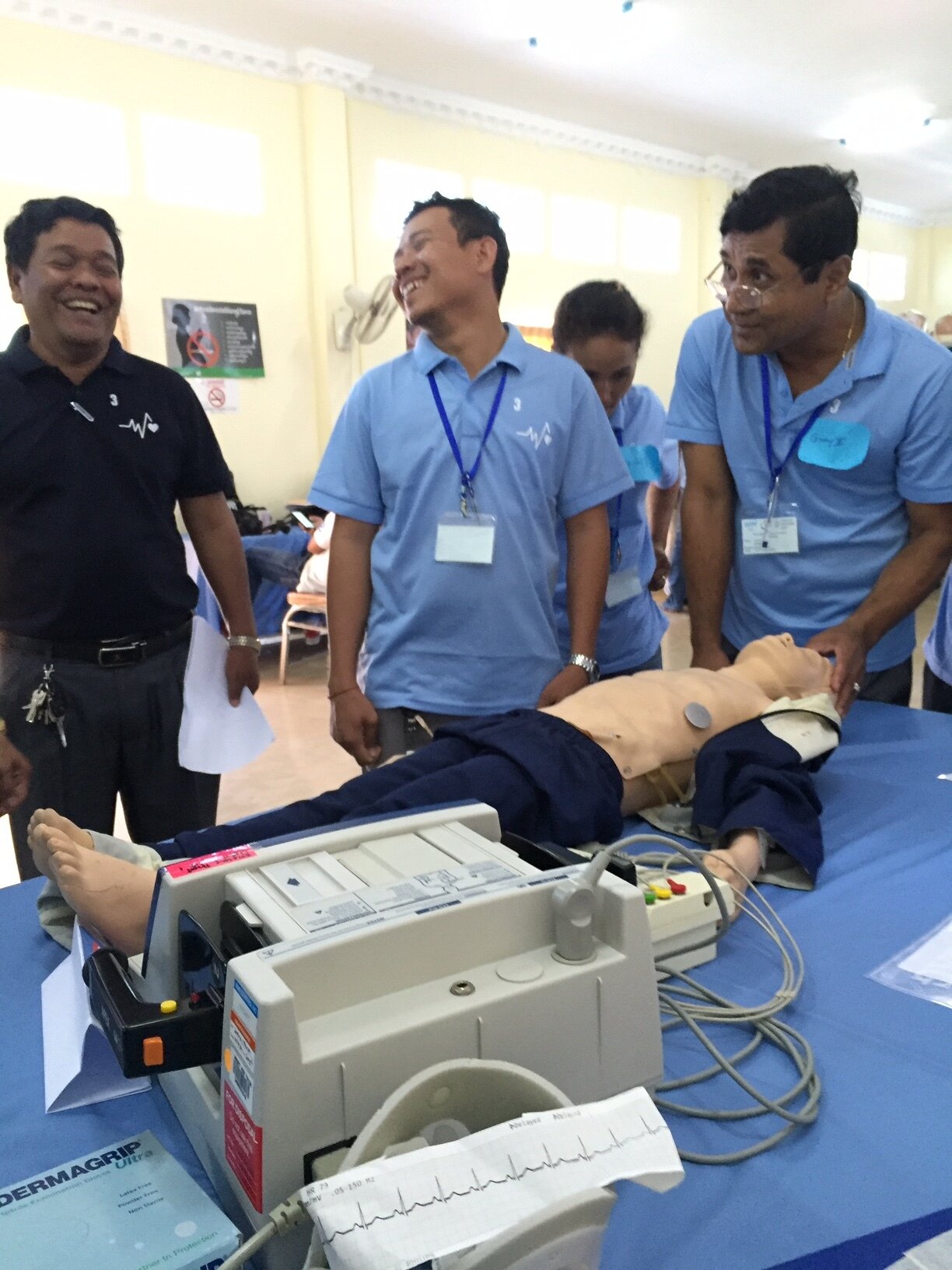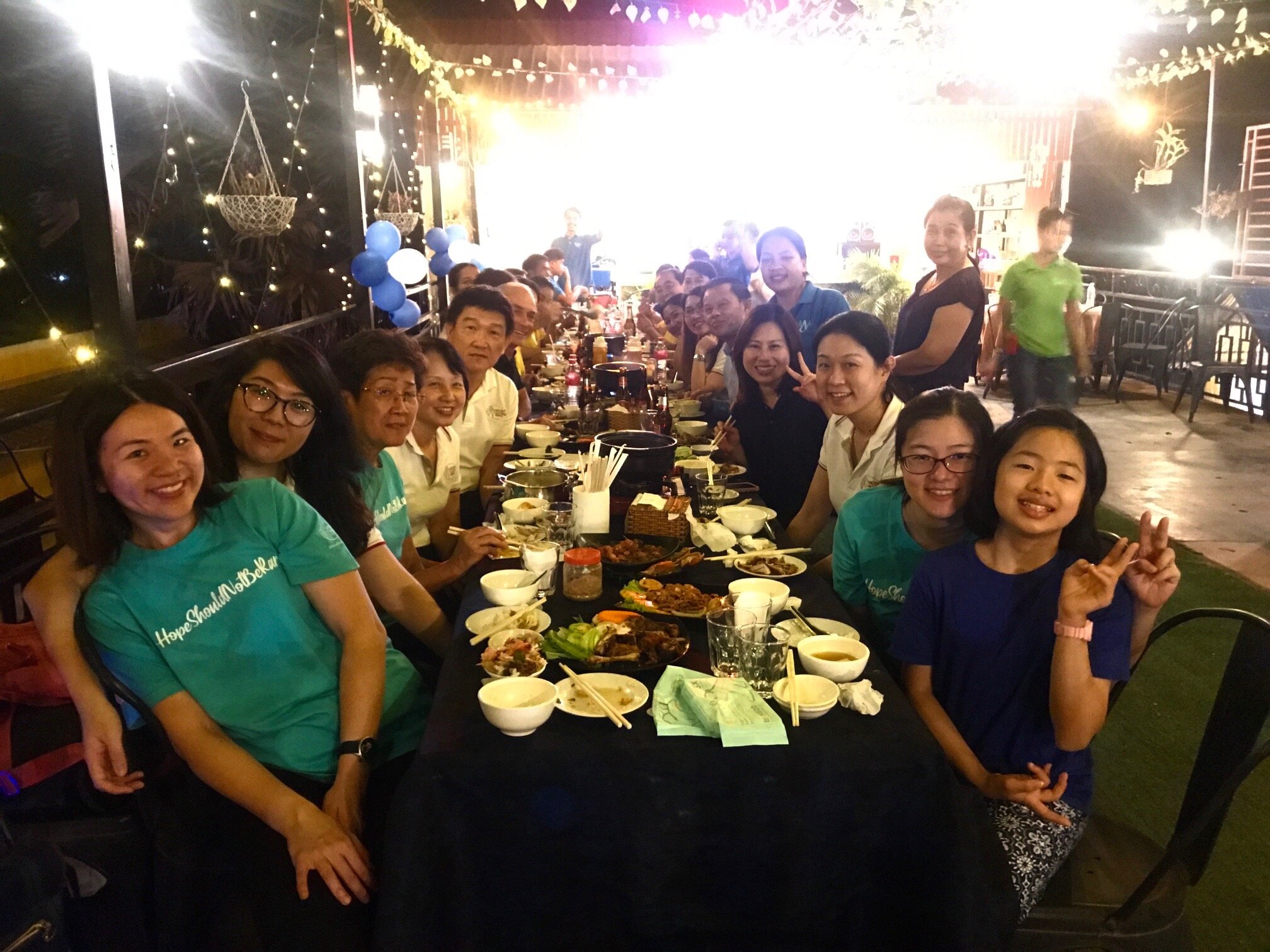Medical Training Program : Overview
Background
In 2010, we were installing clean water systems into the 42 health centres and 3 hospitals in Kampong Chhnang (KC). We were building our relationship with Dr Prak Vonn, Director of PHDKC (Provincial Health Department). He told us about the high incidence of deaths in mothers giving birth and we were shocked by the numbers. When we came back to Singapore we contacted KK Women’s and Children’s Hospital.
Professor Anette Jacobsen, head of paediatric surgery, immediately agreed to come to KC and check on why the numbers were so bad. She brought a midwife, Junaidah, with her, to do a recce and find out what was going on. Following that Anette asked the CEO KKH, Prof Kenneth Kwek, to join a second trip, to meet PHD and visit health centres and hospitals. The second trip was during the monsoon, one of the worst for many years. The Tonle Sap river was flooded so high that all we could see was the roofs of houses. One of the health centres we visited was knee height in water, but we managed to get there by boat and have a meeting, up to our knees in water.
Shortly after the second recce, KKH agreed to start a midwife emergency training program. Having researched the medical statistics in KC, with the help of WAH and PHD, KKH identified three main reasons for the deaths, PPH, eclampsia, and general hygiene. By running regular programs, in collaboration with WAH and PHD, in Cambodia, KKH believed we could drop the mortality rates for mothers in birth.
In 2013, we hosted our first medical training program.
train-the-trainer PROGRAM
Kenneth Kwek suggested early on in our partnership that to create maximum impact in the community we should run “Train-the-Trainer” programs, so that the most talented midwives become trainers, helped by KKH, so they could continue to train year round. This initiative has proved to be invaluable, especially during Covid-19, where they can continue to train locally. We now have 20 trainers on the ground.
In 2015 KKH suggested running paediatric emergency programs for children, as well as continuing refresher training using our CORE trainers. We now have over 200 midwives and paediatric nurses and doctors trained by KKH.
Growing partnerships
In 2017 Mount Alvernia asked to be involved in our work, wishing to help add value to the training and complement the training already ongoing from KKH. It was decided to run respiratory training, as many children die from respiratory problems. Mount Alvernia are now looking at the journey of the mother from pregnancy to the when the baby is one month old, making sure they understand nutrition, latching the baby, etc.
Believing in the spirit of being impactful global citizens, Mount Alvernia Hospital endeavors to help not only Singaporeans—but also people around the world. In collaboration with WAH, Mount Alvernia Hospital has completed the second medical training in Kampong Chhnang, Cambodia, on 20 October 2017—focusing on immediate newborn care. The training had two main goals:
1) equipping the trainees with the specific resuscitation skills needed to reduce the high mortality rate.
2) enabling the trainees to extend their knowledge by training their fellow doctors, nurses, or midwives.
WAH always believes in the importance of knowledge transfer and empowering the locals. We thank Mount Alvernia Hospital for helping us to make our work possible.
Summary:
2013 - KKH sends around ten doctors and midwives from Singapore to Kampong Chhnang twice per year to train up to 50 midwives per program
2014 - Start of Train-the-Trainer program
2015 - Start of APEC (Acute Pediatric Emergency Care) training with KKH
2016 - Trained over 200 nurses, midwives, and doctors. And 20 CORE trainers
2017 - Mt Alvernia Hospital join WAH in Cambodia and expansion of APEC (Acute Pediatric Emergency Care) Training concentrating on neonatal and respiratory issues.
2018 - KKH and Mt Alvernia combine their expertise to provide continuation training for local nurses and midwives for APEC (Acute Paediatric Emergency Care) Training
2019 - Maternal and Child Health, and Managing Respiratory Arrest
Un Somaly : Acute Pediatric Emergency Care (APEC) trainee, Krang Leav Health Centre

